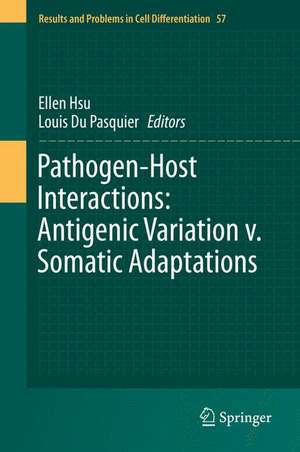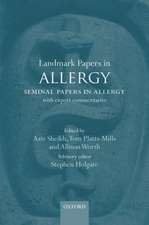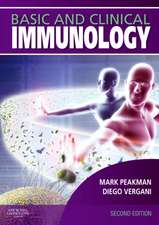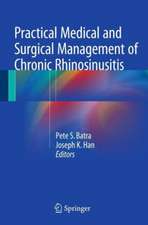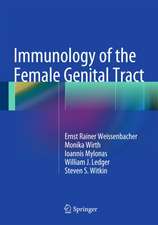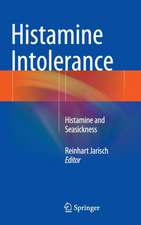Pathogen-Host Interactions: Antigenic Variation v. Somatic Adaptations: Results and Problems in Cell Differentiation, cartea 57
Editat de Ellen Hsu, Louis Du Pasquieren Limba Engleză Hardback – 13 noi 2015
| Toate formatele și edițiile | Preț | Express |
|---|---|---|
| Paperback (1) | 1096.98 lei 6-8 săpt. | |
| Springer International Publishing – 23 aug 2016 | 1096.98 lei 6-8 săpt. | |
| Hardback (1) | 1103.95 lei 6-8 săpt. | |
| Springer International Publishing – 13 noi 2015 | 1103.95 lei 6-8 săpt. |
Din seria Results and Problems in Cell Differentiation
- 18%
 Preț: 1391.73 lei
Preț: 1391.73 lei - 15%
 Preț: 597.16 lei
Preț: 597.16 lei -
 Preț: 387.96 lei
Preț: 387.96 lei - 5%
 Preț: 373.33 lei
Preț: 373.33 lei -
 Preț: 382.18 lei
Preț: 382.18 lei -
 Preț: 385.08 lei
Preț: 385.08 lei - 15%
 Preț: 644.82 lei
Preț: 644.82 lei - 15%
 Preț: 634.00 lei
Preț: 634.00 lei -
 Preț: 387.20 lei
Preț: 387.20 lei -
 Preț: 387.75 lei
Preț: 387.75 lei - 15%
 Preț: 643.34 lei
Preț: 643.34 lei -
 Preț: 382.18 lei
Preț: 382.18 lei -
 Preț: 394.71 lei
Preț: 394.71 lei -
 Preț: 390.08 lei
Preț: 390.08 lei -
 Preț: 381.43 lei
Preț: 381.43 lei -
 Preț: 385.47 lei
Preț: 385.47 lei -
 Preț: 385.47 lei
Preț: 385.47 lei -
 Preț: 391.22 lei
Preț: 391.22 lei - 18%
 Preț: 1227.04 lei
Preț: 1227.04 lei - 20%
 Preț: 561.68 lei
Preț: 561.68 lei - 5%
 Preț: 1418.27 lei
Preț: 1418.27 lei -
 Preț: 386.00 lei
Preț: 386.00 lei -
 Preț: 377.95 lei
Preț: 377.95 lei -
 Preț: 391.61 lei
Preț: 391.61 lei -
 Preț: 388.52 lei
Preț: 388.52 lei - 18%
 Preț: 1380.63 lei
Preț: 1380.63 lei - 15%
 Preț: 639.25 lei
Preț: 639.25 lei - 18%
 Preț: 1220.12 lei
Preț: 1220.12 lei - 15%
 Preț: 642.51 lei
Preț: 642.51 lei - 15%
 Preț: 640.37 lei
Preț: 640.37 lei - 18%
 Preț: 1222.49 lei
Preț: 1222.49 lei - 18%
 Preț: 946.41 lei
Preț: 946.41 lei -
 Preț: 387.38 lei
Preț: 387.38 lei - 18%
 Preț: 1228.47 lei
Preț: 1228.47 lei - 15%
 Preț: 642.51 lei
Preț: 642.51 lei - 18%
 Preț: 1663.00 lei
Preț: 1663.00 lei - 18%
 Preț: 1225.62 lei
Preț: 1225.62 lei
Preț: 1103.95 lei
Preț vechi: 1162.06 lei
-5% Nou
Puncte Express: 1656
Preț estimativ în valută:
211.25€ • 225.89$ • 176.13£
211.25€ • 225.89$ • 176.13£
Carte tipărită la comandă
Livrare economică 17 aprilie-01 mai
Preluare comenzi: 021 569.72.76
Specificații
ISBN-13: 9783319208183
ISBN-10: 3319208187
Pagini: 300
Ilustrații: VIII, 336 p.
Dimensiuni: 155 x 235 x 25 mm
Greutate: 0.66 kg
Ediția:1st ed. 2015
Editura: Springer International Publishing
Colecția Springer
Seria Results and Problems in Cell Differentiation
Locul publicării:Cham, Switzerland
ISBN-10: 3319208187
Pagini: 300
Ilustrații: VIII, 336 p.
Dimensiuni: 155 x 235 x 25 mm
Greutate: 0.66 kg
Ediția:1st ed. 2015
Editura: Springer International Publishing
Colecția Springer
Seria Results and Problems in Cell Differentiation
Locul publicării:Cham, Switzerland
Public țintă
ResearchCuprins
Evolution of immunity and pathogens.- A host-pathogen interaction reduced to first principles: Antigenic variation in T. brucei.- Antigenic variation in Plasmodium falciparum.- Polymorphic mucin-like proteins in Schistosoma mansoni, a variable antigen and a key component of the compatibility between the schistosome and its snail host.- Fibrinogen-related proteins (FREP) in mollusks.- Somatic and germline diversification of a putative immunoreceptor within one phylum: Dscam in arthropods.- An immune effector system in the Protochordate gut sheds light on fundamental aspects of vertebrate immunity.- Variable lymphocyte receptors: a current view.- Antibody repertoire in fish.- Unique features of fish immune repertoires: particularities of the adaptive immunity within the largest group of vertebrates.- The evolution and structure of atypical T cell receptors.- Diversification of the primary antibody repertoire by AID-mediated gene conversion.- Antibody isotype switching in vertebrates.
Textul de pe ultima copertă
This volume provides in-depth reviews of model systems that exemplify the arms race in host-pathogen interactions. Somatic adaptations are responsible for the individualization of biological responses to the environment, and the continual struggle between host immune systems and invading pathogens has given rise to corresponding processes that produce molecular variation. Whether in mollusks or human beings, various host somatic mechanisms have evolved independently, providing responses to counter rapidly-changing pathogens. The pathways they utilize can include non-heritable changes involving RNA and post-translational modifications, or changes that produce somatic DNA recombination and mutation. For infectious organisms such as protozoans and flatworms, antigenic variation is central to their survival strategy. Evolving the ability to evade the host immune system not only increases their chances of survival but is also necessary for successful re-infection within the host population.
Caracteristici
Provides state-of-the-art reviews on host-pathogen interactions Offers comprehensive information on the immunological processes involved in pathogen defense in different organisms Written by international experts from different fields Includes supplementary material: sn.pub/extras
